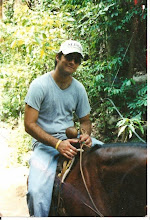It began with one of the quotations that shows up on screen when you die in a video game I'm playing right now called Call of Duty. I wrote this e-mail to Matt, whose opinion I always value, but who I know to be an avid liberal and pacifist, whose opinions are usually opposed to mine, though from an excess (as I would see it) of progressive ideology, not because we're that different in our moral beliefs:
War is an ugly thing, but not the ugliest of things. The decayed and degraded state of moral and patriotic feeling which thinks that nothing is worth war is much worse. The person who has nothing for which he is willing to fight, nothing which is more important than his own personal safety, is a miserable creature, and has no chance of being free unless made or kept so by the exertions of better men than himself.
John Stuart Mill
Not an accusation. Simply an appeal for response or comment.Peace (the state of being where nothing CURRENTLY HAPPENING is worth war),
George
Matt replied with the following:
And I replied this morning, this holiday morning, with the following tidings of comfort and joy:
No sir.
Ghandi could not have done what he did without the British press. I don't know anything about Abdul Ghaffar Khan so I'll wikipedia him. Ok, so the thing about Ghandi and Ghaffar Khan in this situation is that John Stuart Mill's words "the exertions of better men than themselves" apply to them in the positive way. They are the better men. Better men than the British soldiers who beat them. Better men than the British Parliament who enslaved them. You're absolutely correct that fighting does not have to mean war. Ghandi did indeed fight, but you need to remember that Ghandi was a man of his time. He could not have existed two hundred years before he did, that is, could not have existed before the democratic age or at the least before the enlightenment. A printing press was absolutely critical to the work that Ghandi did. He used this weapon masterfully, and anyone who says that he achieved what he did through non-violent means is fooling himself. HE HIMSELF was not violent, and neither were his followers, but he absolutely USED the violence of the British against themselves. Absolutely, his weapon was his righteousness, but he also manipulated the British with actions where he knew what the outcome would be. Think of the episode where he caused thousands of his followers (and himself, I don't mean to suggest that he was not above suffering what his followers suffered) to be systematically beaten when they approached (and I don't know the story well enough) whatever place that had been deemed off limits to natives. He knew in advance what the outcome would be, just as you know what the outcome would be if thirty-five thousand people were to march systematically up to the front entrance of Los Alamos.
But the important point is that under a monarchy or god forbid a despot, where the media is either censored or non-existent, Ghandi's methods WOULD NOT HAVE BEEN EFFECTIVE. In fact, Abdul Ghaffar Khan is an incredibly ironic example, because if ten thousand people were to gather for a non-violent protest march in Northwest Frontier Province today, thirty or forty of them would be blown to bits by another "Khan" who holds court there now. Two hundred miles south and east, tens of thousands of people have been protesting their government non-violently for a year and a half now. The result? An entirely symbolic victory, and a step backward in terms of everyday freedoms and press freedoms. What is different about today than sixty years ago? Simple. The region that was once ruled by a democratically elected (though not local) government, in now ruled by a local (though not democratic) dictator. Which one if preferable? Admittedly, probably the native dictator. But even better would be an uncorrupted local democratic government, which, and you mark my words, will only happen in one of two ways, either A) the press regains its freedoms and is able to rally the population to action once again, or B) la revolucion! (most likely in the form of a coup d'etat, which uses violence or the threat of violence to take over the government).
War is only one manifestation of the willingness to fight. I am not deluded. Mill does not claim that the only "better men" are the warriors, he only claims that sometimes there are no other means of effective manifestation than war. At such times, fighters must be warriors or must support the warriors or they are not fighting, they are only masturbating and making themselves feel better that they have resisted even though the resistance was ineffective. We can dispute the times that do call for war, what the prerequisites are. We cannot dispute the need, sometimes, for war. Peace, I said, is the times when nothing currently happening is worth going to war to solve. Peace was the circumstance of India. Peace is not the circumstance of Sudan today. Or Chechnya. Or Burma. Or Northwest Frontier Province, Pakistan. What would Adolf Hitler or Josef Stalin have done to a peaceful protester? They would have laughed and called him a statistic.
Peace and Love. Merry Midwinter Reaffirmation of Human Connection with Lots of Lights and Thoughtful Gifts and Family Gatherings.
George
